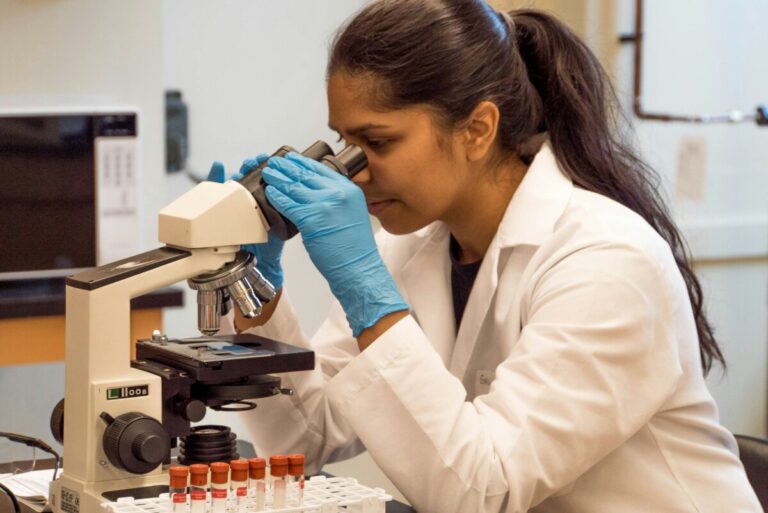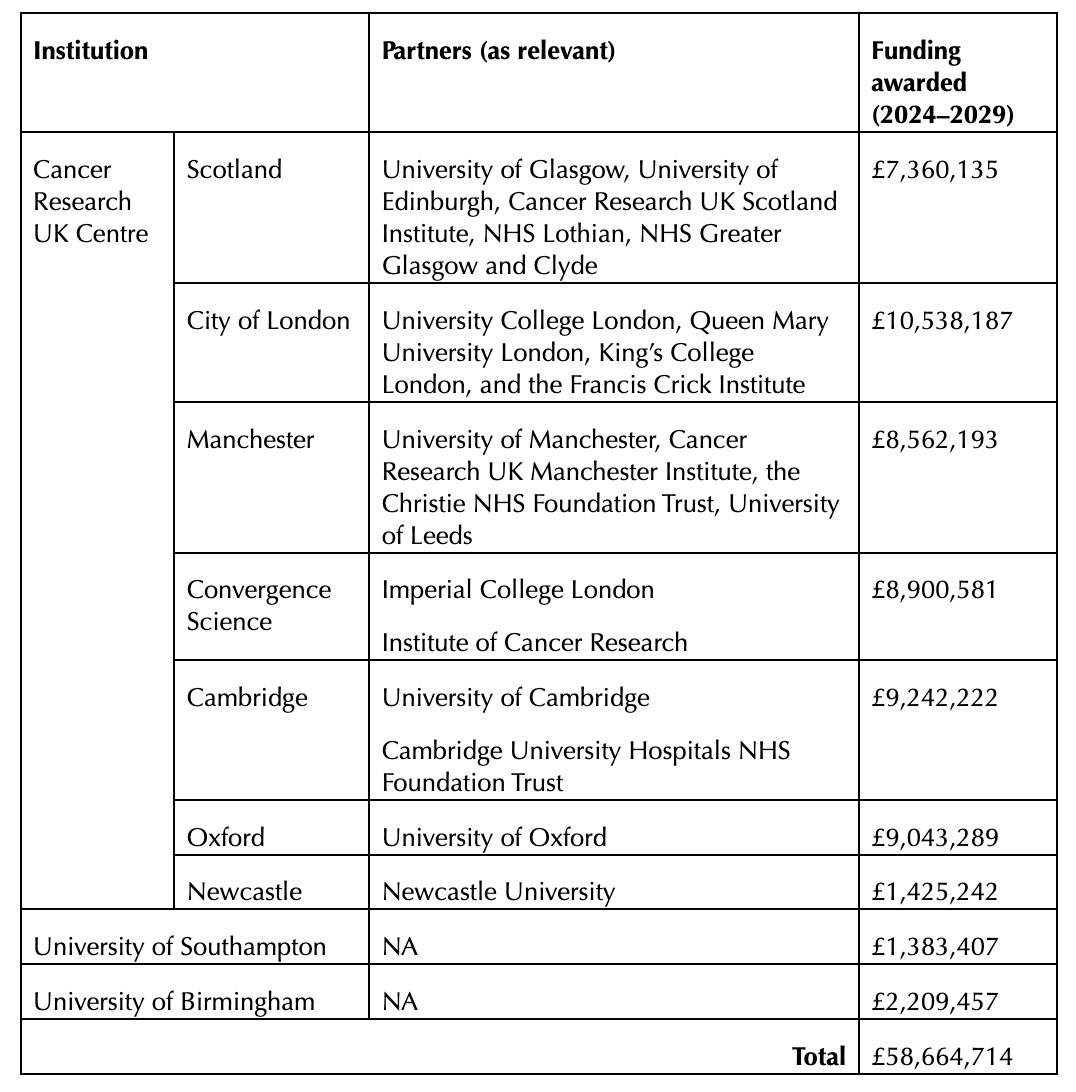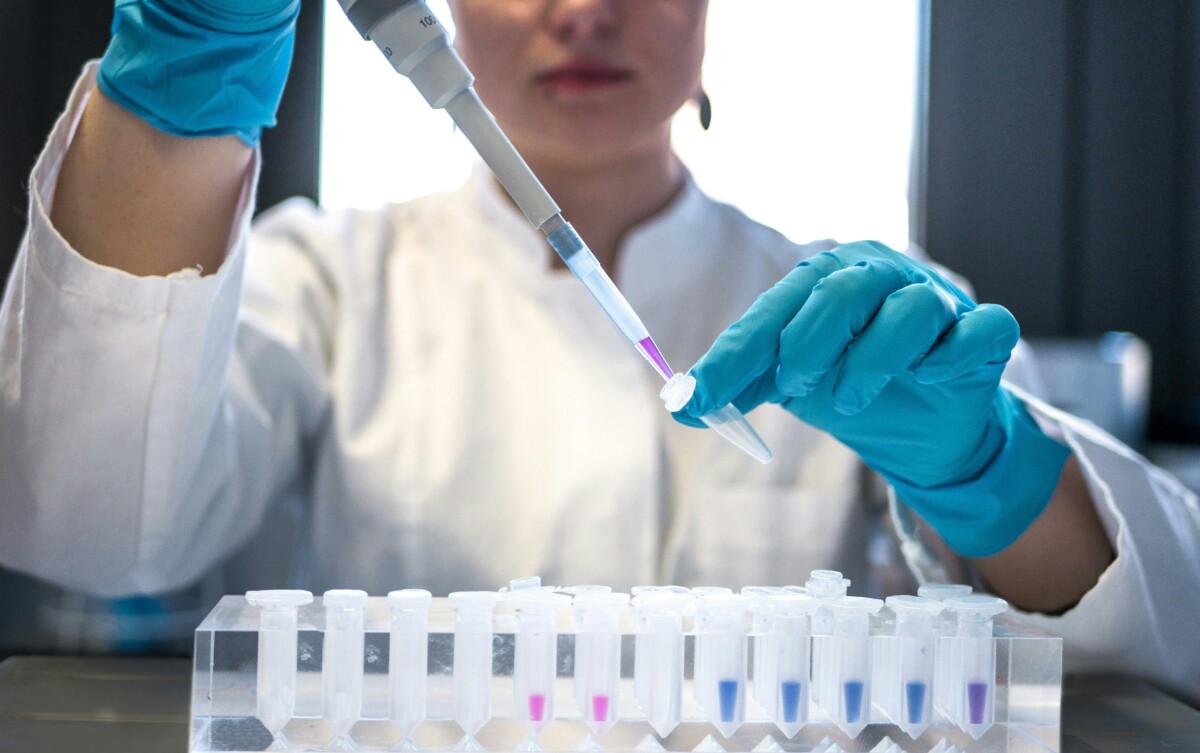Cancer Research UK announces £58.7mn clinician scientist training fund

Cancer Research UK is providing a £58.7mn boost for universities across Scotland and England, to train more doctors as clinician scientists so they can undertake cancer research.
Cancer Research UK’s Clinical Academic Training Programme Award builds on the five-year £50.7 million investment awarded by the charity in 2019, and will support clinical research training at nine of its research centres over the next five years. In total, Cancer Research UK will have invested more than £109 million in this programme over ten years, funding around 50% of all publicly-funded research in the UK.
Advertisement
Commenting on the funding, Cancer Research UK’s Chief Executive Michelle Mitchell said:
“Clinician scientists have a very important role to play by bringing their knowledge and experience of treating people with cancer to scientific research.
“We need all our doctors and scientists to be able to reach their full potential, no matter their background. That’s why we are continuing to provide flexible training options for early-career clinician scientists. After the success of the first five years of this programme, we want to encourage even more clinicians to get involved in cancer research to help us get closer to a world where everybody lives longer, better lives free from the fear of cancer.”
Becoming a clinician scientist usually involves doctors taking time out of their medical training to undertake a PhD, before returning to train in their chosen specialisation, but the charity says many clinicians don’t come back to research after qualifying as consultants, which may be due to existing pressure on the healthcare system and lack of available funding.
Nearly three quarters (74%) of clinical research staff surveyed by Cancer Research UK in 2023 said that it has become harder to deliver research in a timely manner in the last 18 months, with 78% of respondents describing wider pressures on the health service as a substantial or extreme barrier.
To address this problem, Cancer Research UK awards funding to provide flexible training options alongside mentorship and networking opportunities to better support clinicians who want to get involved and stay in cancer research, through building stronger clinician scientist networks within and across research institutes.
In particular, the funding allows universities to offer combined Bachelor of Medicine-Doctor of Philosophy (MB-PhD) qualifications to early career clinicians, which allows medical students to complete a PhD earlier in their medical training.
Funding awarded

Commenting on the renewal of clinical training funding in Scotland, Clinical Director of the Cancer Research UK Scotland Centre, Professor Charlie Gourley said:
“We are delighted to gain further Cancer Research UK funding and to work with colleagues across Scotland to offer doctors new and flexible training opportunities so that they can become the clinical cancer researcher leaders of the future.
“It is vital for our laboratory scientists to be able to work with clinicians at all levels and specialities to find new and better treatments for cancer. This will undoubtedly lead to benefits for cancer patients in the longer term.”
The Cancer Research UK Manchester Centre is one of eight centres in England receiving further funding. Director of the centre and Professor of Cancer Studies at The University of Manchester, Professor Robert Bristow said:
“Renewing funding for this programme of training and support for clinician scientists to help them become the next generation of research leaders is another important step forward. The increased flexibility offered, and additional funding and support after doing a PhD will allow more time for doctors to do research, no matter their background and personal circumstances.
“This continued investment by Cancer Research UK will deliver a highly enthusiastic, educated, and diverse workforce in the UK who will help bring new cancer treatments and diagnostic tests to those who need it most.”





